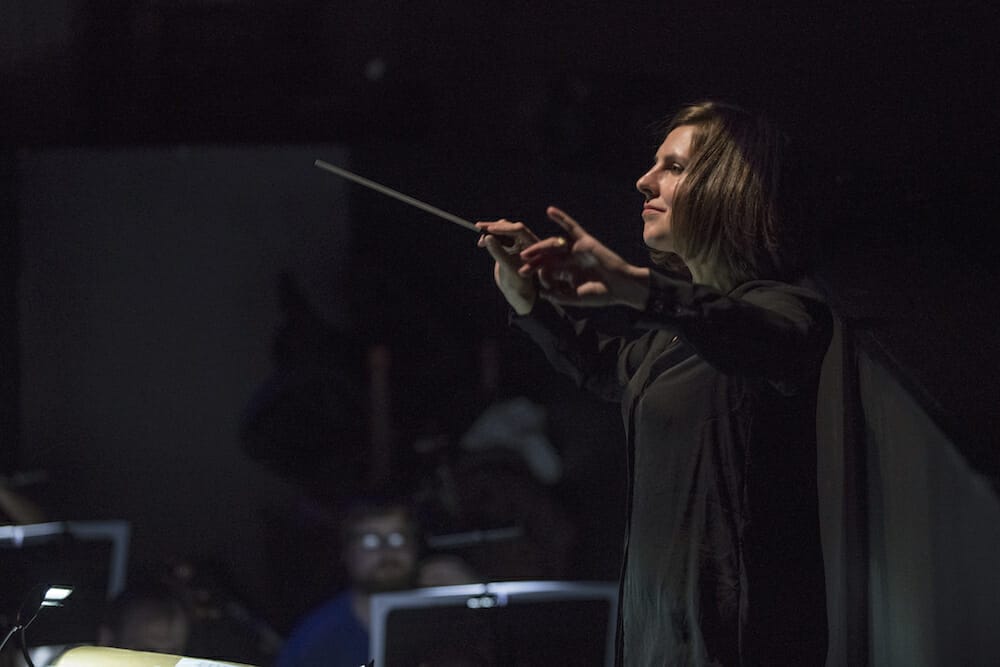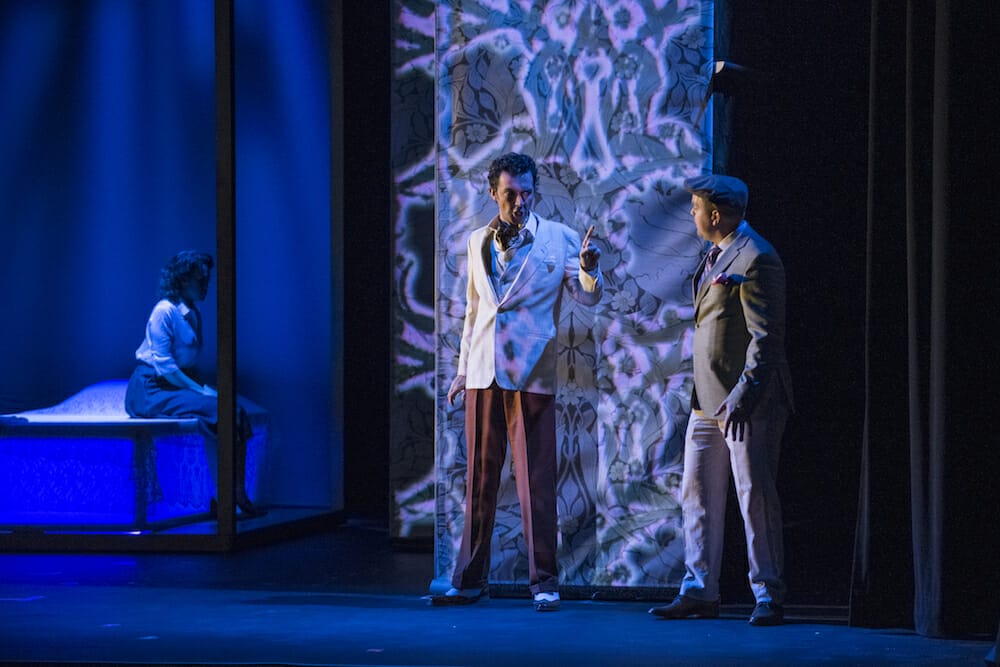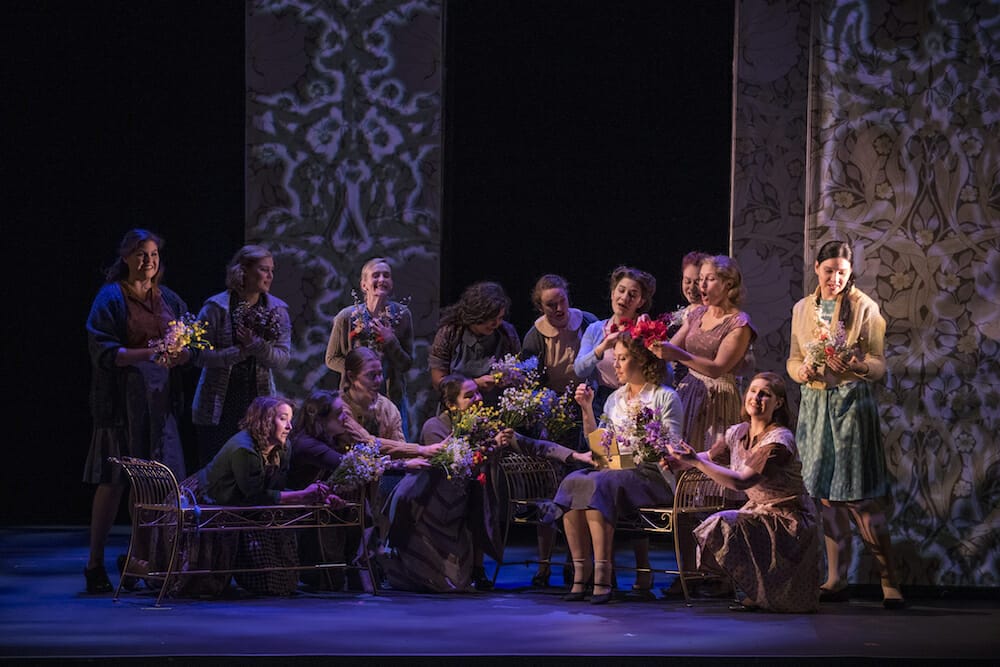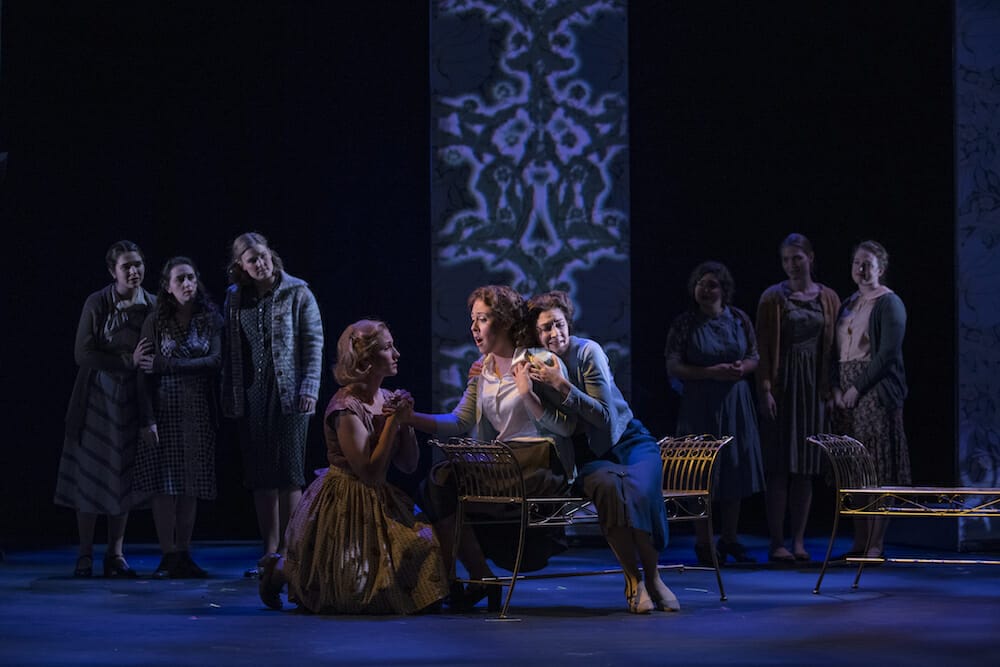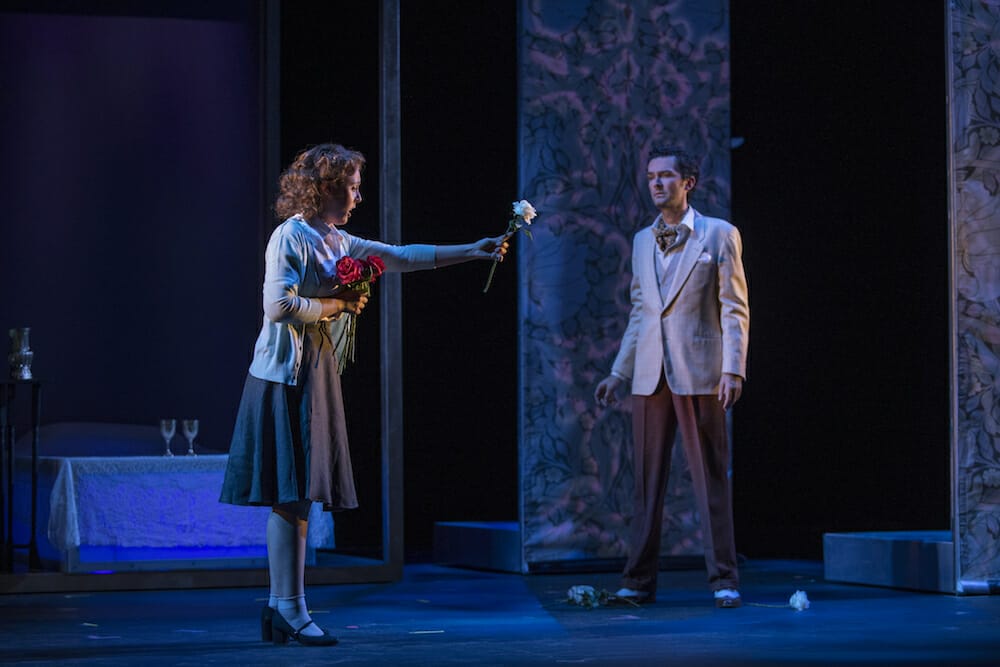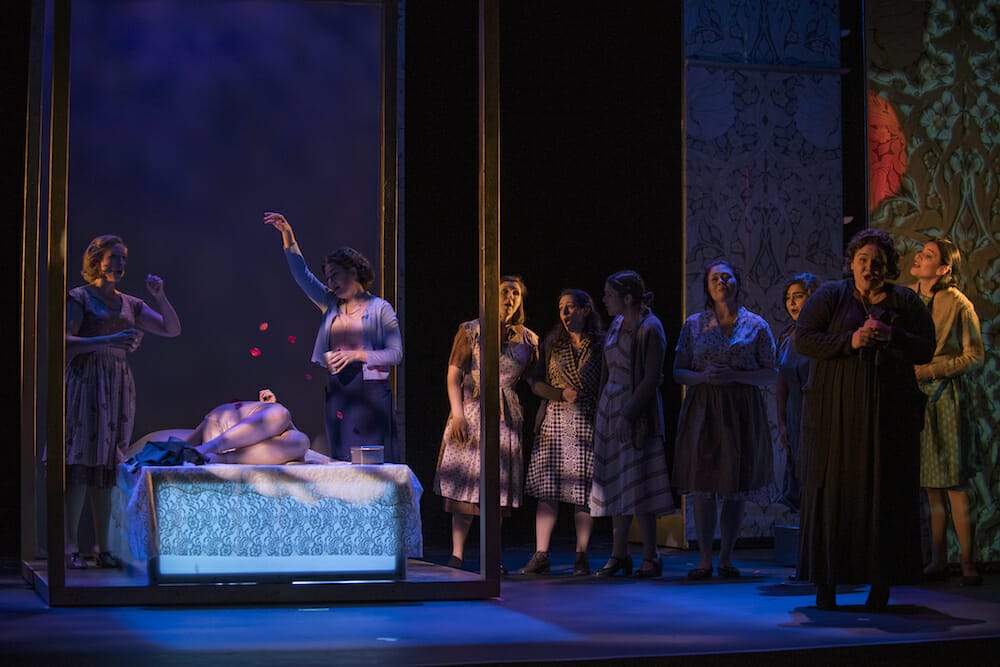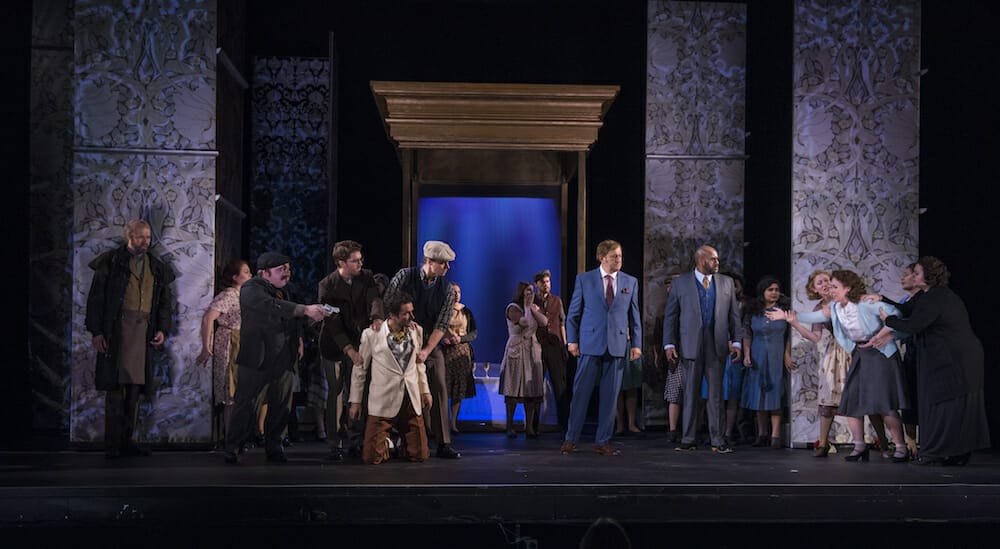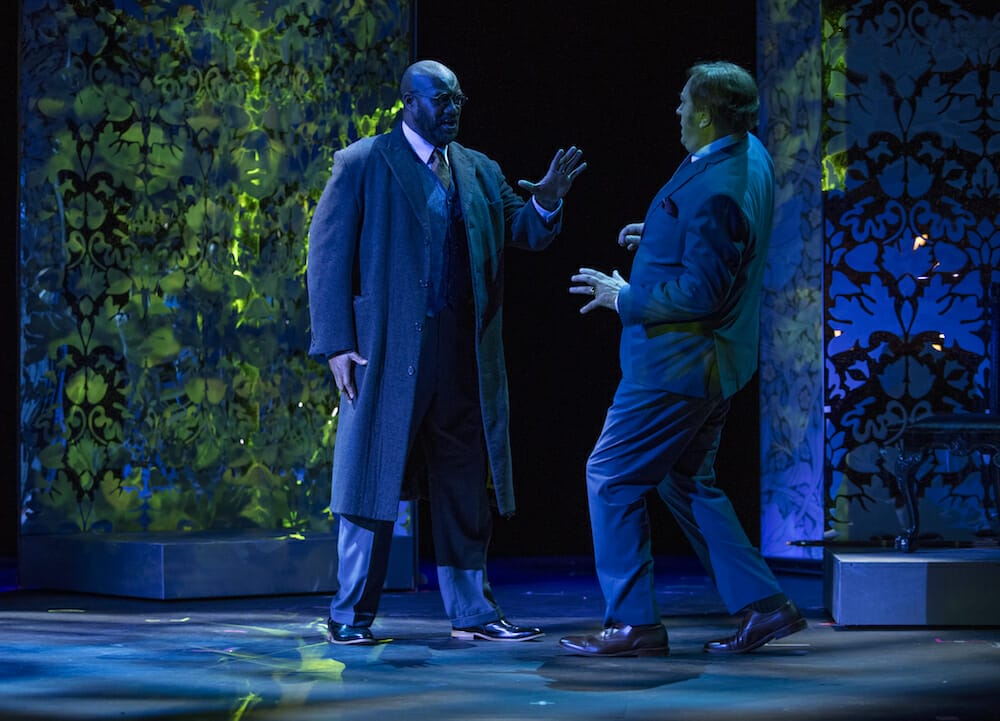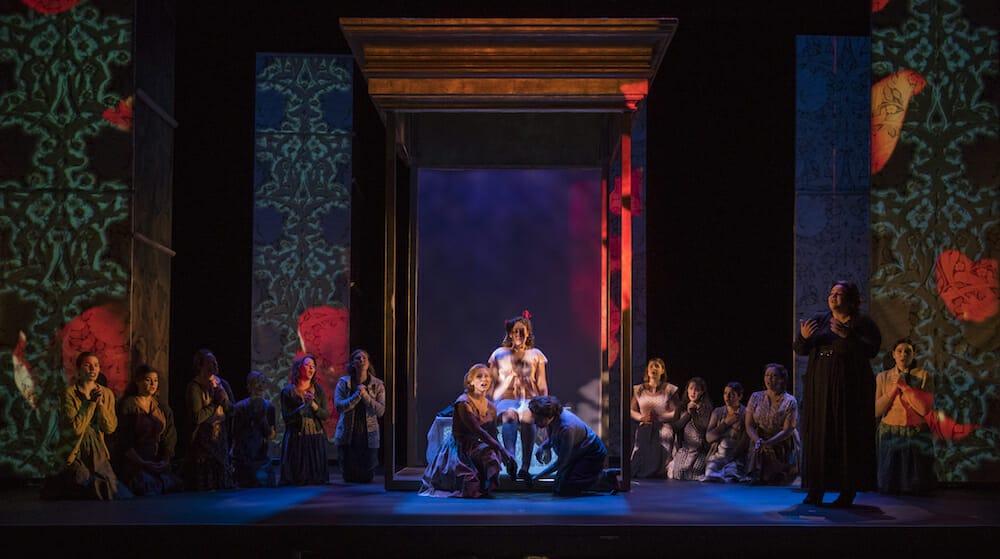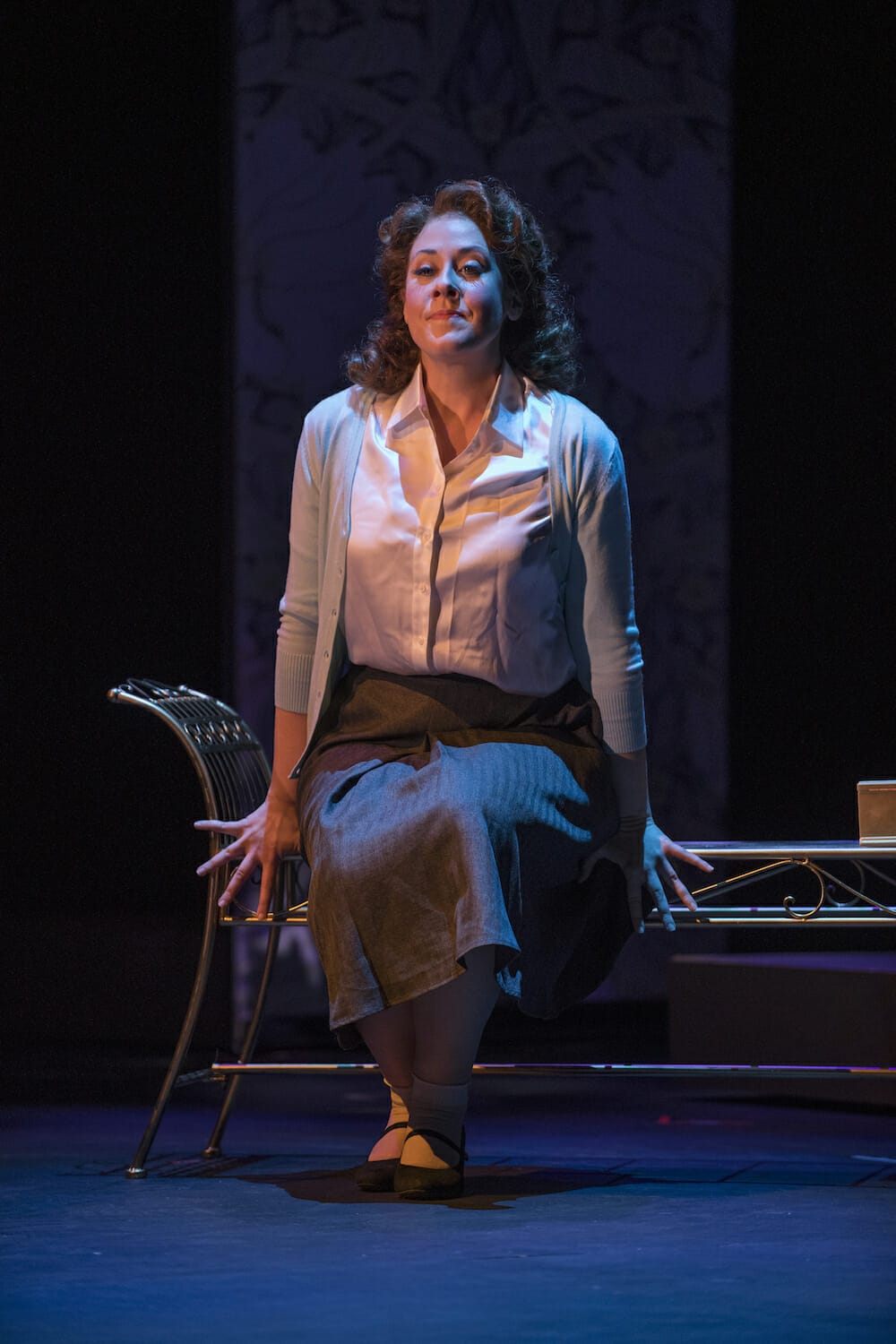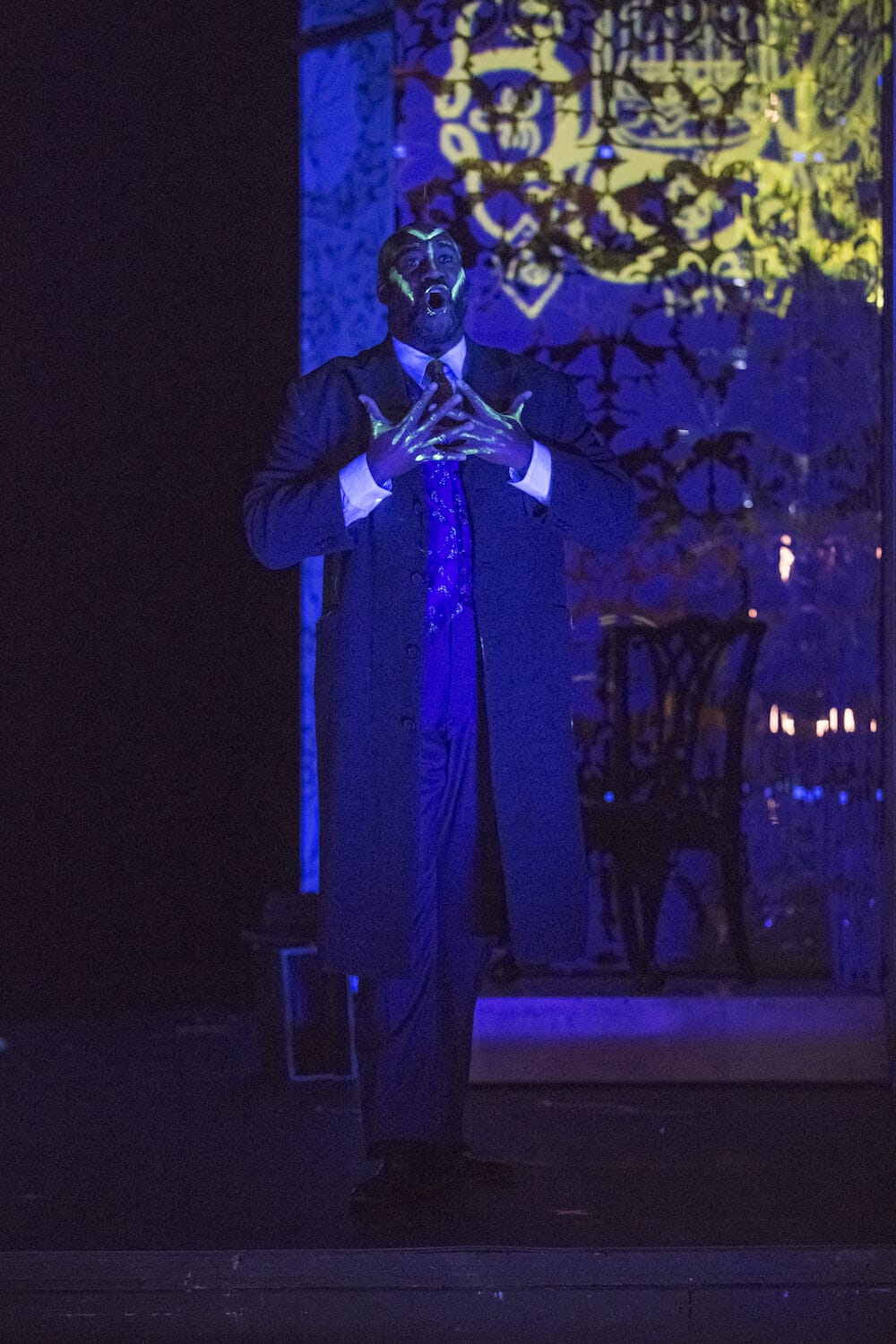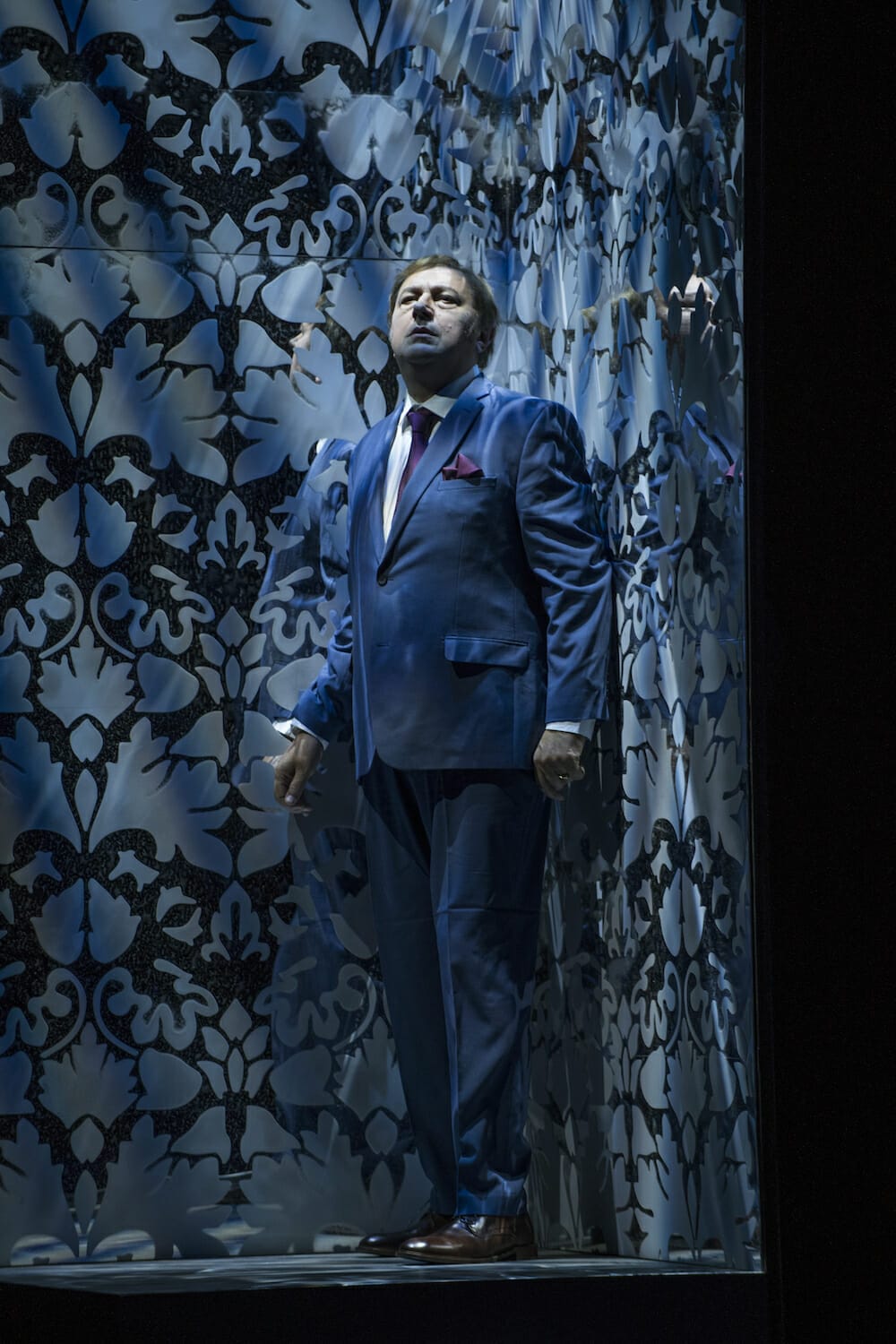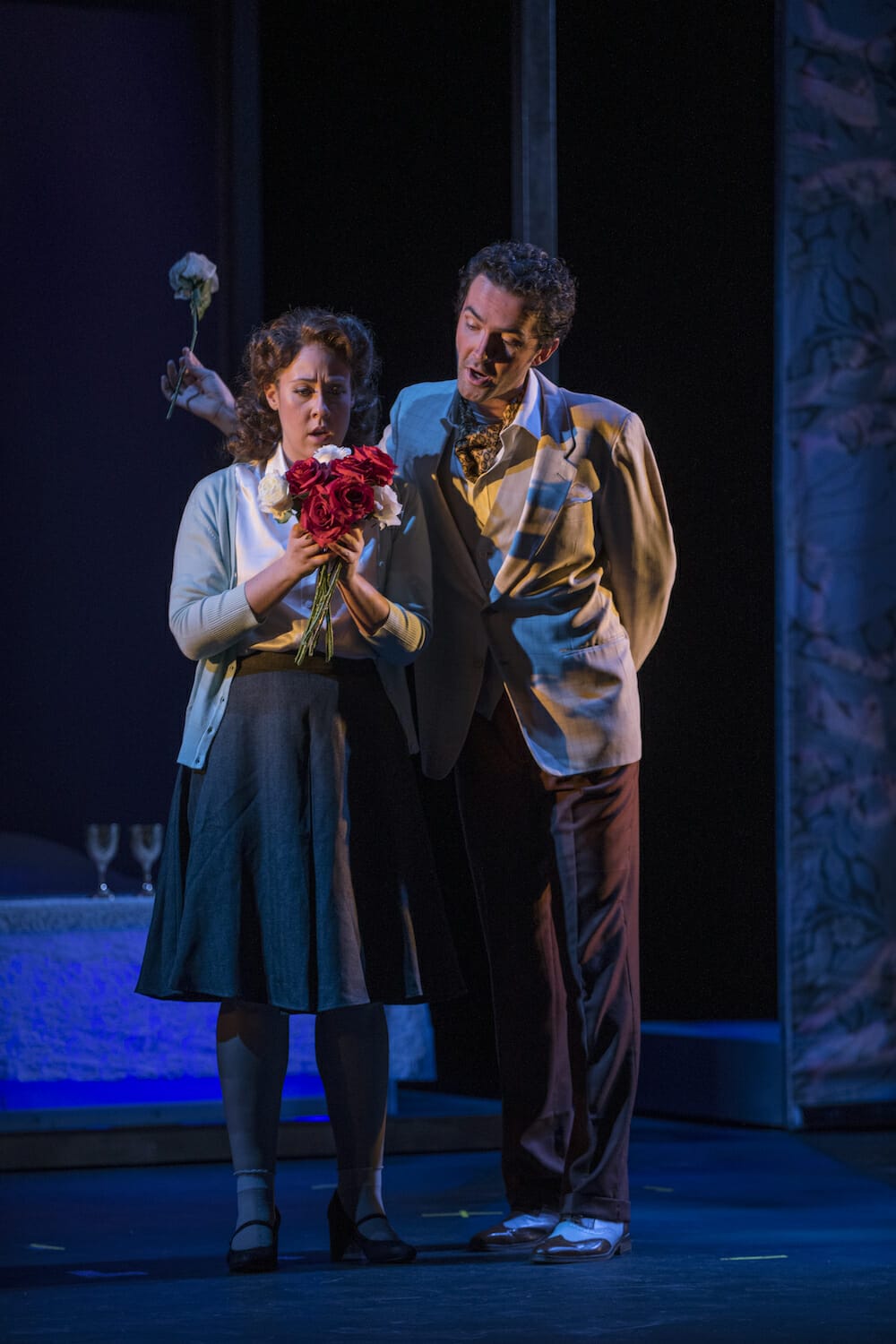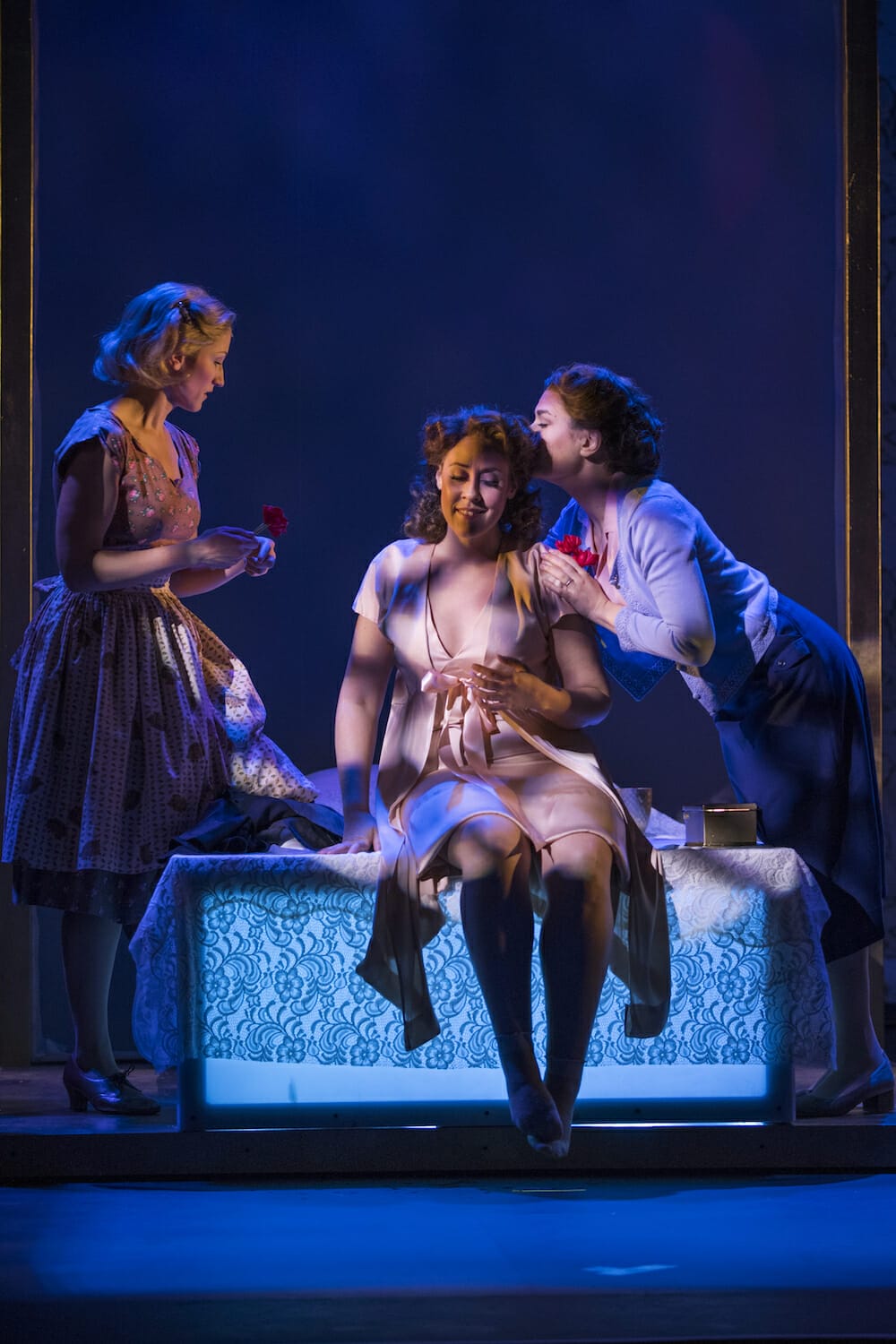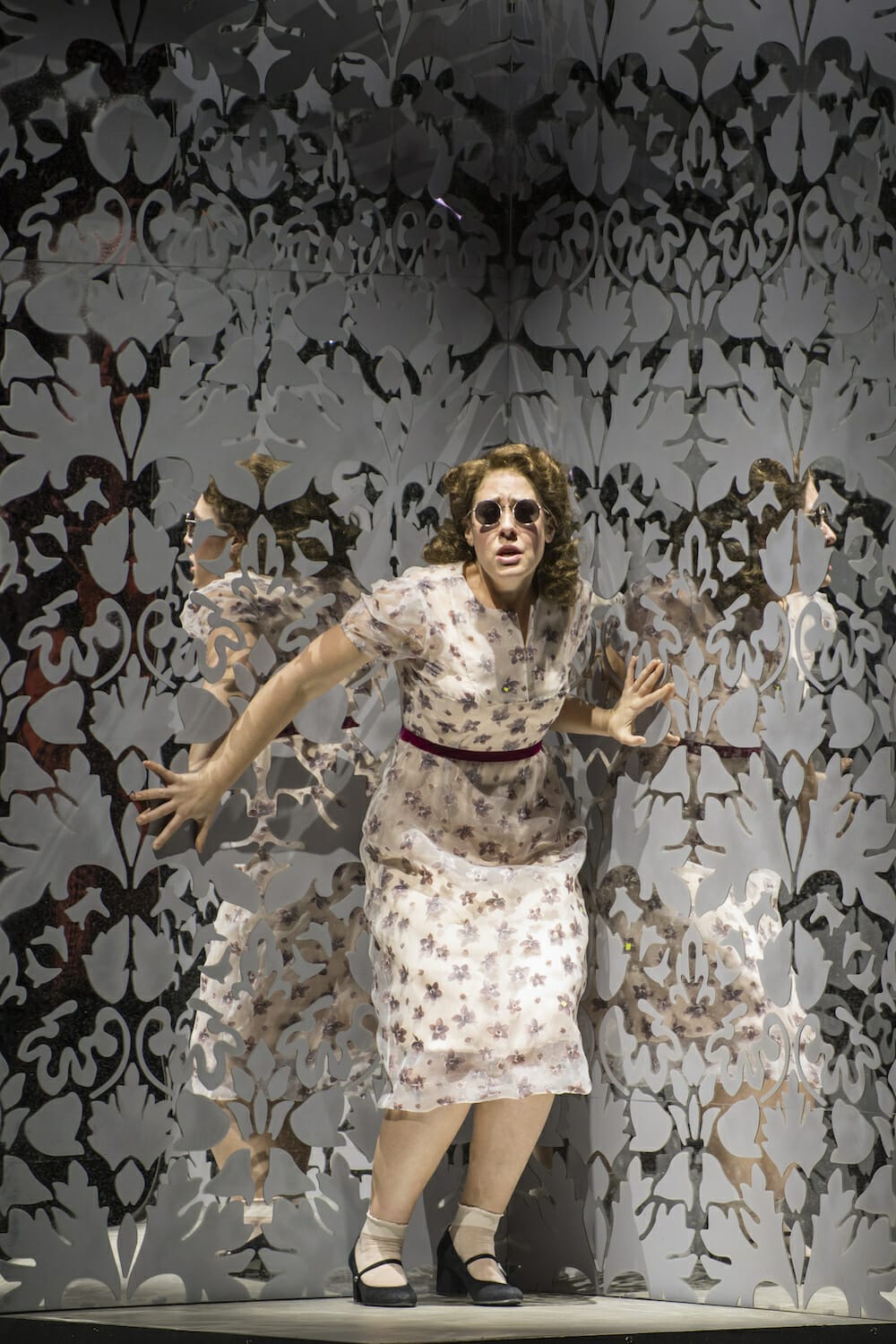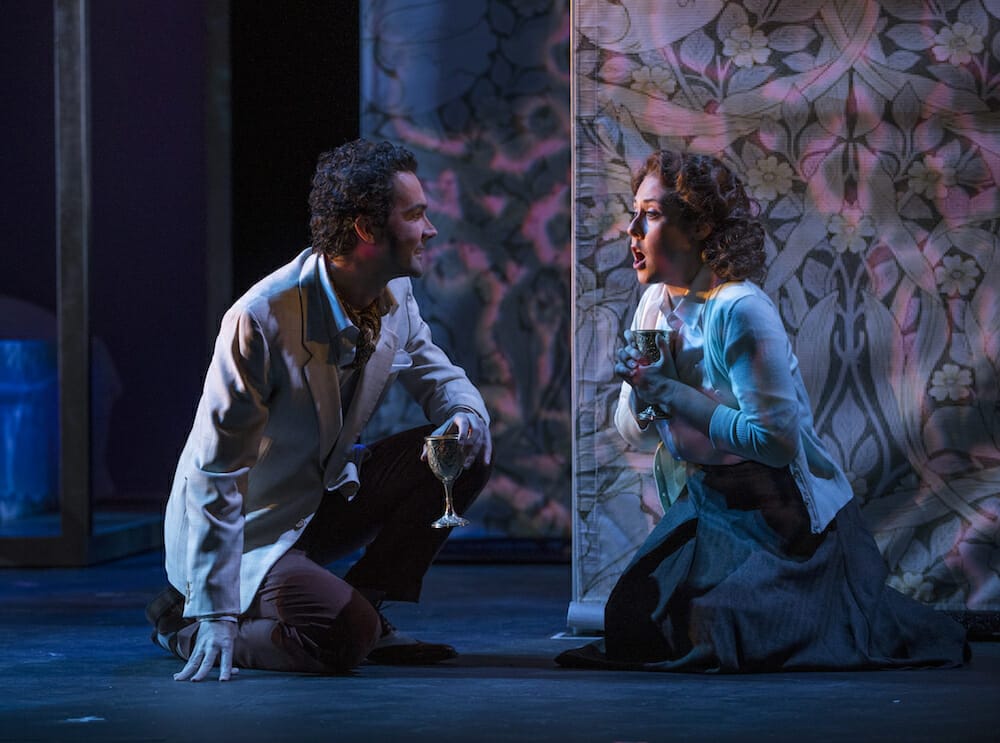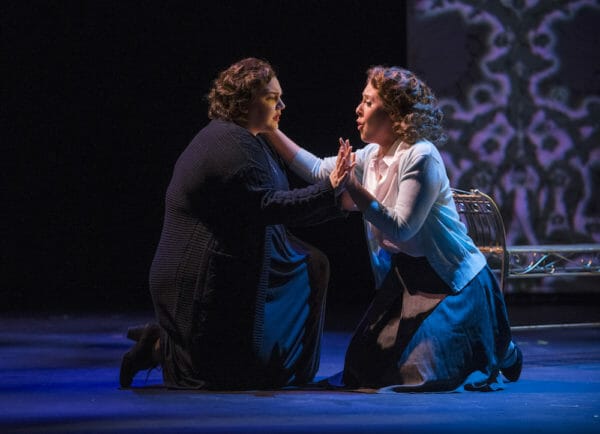Harps and violins accompany the young blind lady as she walks through the sumptuous garden accompanied by serving women fawning over her, but her own motif is played in a minor key. The garden is beautiful, but the people surrounding her are false. This is Iolanta, the title character of Tchaikovsky’s last opera. That it has never been given a full production in Chicago becomes even more incredible after hearing it, since it contains the kind of rich melodies also found in its original companion piece, The Nutcracker. But Iolanta, with a book by Tchaikovsky’s brother, Modest, is much more tightly plotted and musically consistent. For a fairy tale adaptation written in the 1890s, its depiction of disability is incredibly forward-thinking. In Chicago Opera Theater’s production conducted by Lidiya Yankovskaya in her company debut, the intimate Studebaker Theater becomes, in this writer’s view, the ideal venue for a production that is as dazzling as it is emotionally and musically complex.
The Princess in the Castle
Once upon a time, King René (Mikhail Svetlov) decreed that his daughter’s blindness should be kept a secret even from herself. She has been engaged to be married, but kept in isolation her whole life in a hidden palace. When the story begins, this ruse is already wearing thin. The aloof servants of Iolanta (Katherine Weber), cringe when she refers to them as “friends” because she has no-one else, and Iolanta begs them to tell her how they knew she was crying without touching her face. The nurse, Marta (Emma Ritter), means well, but she’s no Anne Sullivan, and accidentally sends Iolanta reeling into a bench when chiding her that asking questions is sacrilegious.
The king is hoping to have Iolanta cured before her intended arrives (since the young man hasn’t been told about her blindness, either) and has recruited the Mauritanian wizard Ibn-Hakia (Bill McMurray) for aid. He is extremely displeased when Ibn-Hakia informs him that the surgery is simple, but that the results will not be good if Iolanta does not undergo it willingly with full understanding of what she is agreeing to. As it happens, the betrothed, Robert (Christopher Magiera), and his friend, Vaudemont (John Irvin), have arrived in secret, but Robert has already found another lady. Vaudemont is instantly captivated by Iolanta, and Robert happily leaves them alone together.
The Lovers Surprise Each Other
Director Paul Curran leads the cast through the opera with what seems to this reviewer to be great sensitivity, and nowhere more so than in the scene between Vaudemont and Iolanta. Irvin plays Vaudemont initially as a dashing debonair who pays Iolanta a litany of compliments, all directed at her appearance. Her befuddled reaction shames him so much he nearly retreats, at which point it is she who becomes the pursuer. Katherine Weber’s soprano conveys Iolanta’s vast strength, but her acting is subtle. The young princess is delighted to have a chance to host a stranger, but the conversation soon zigzags in directions unexpected to both. Whereas other love scenes in operas can drag, this one is dynamic because it contains emotional truth. Iolanta explains that she fully enjoys the senses she has and never thought there was any barrier between her and the garden’s beauty. Vaudemont’s own behavior becomes much more authentic in response, as he comes to truly admire her and realizes that genuine respect is something he is uniquely situated to give her.
Chicago Opera Theater Reveals Magic in Close Quarters
Led by Yankovskaya, the orchestra’s music buoys each character’s journey over a short eighty-five minutes. As the cruel, misguided king, Svetlov’s mournful bass voice arcs over the room and his rigid accompaniment, the perfect vehicle for his character’s arrogance. But the most visually and vocally distinctive moment is that of Ibn-Hakia’s monologue, “Dva mira.” The confluence of Driscoll Otto’s lighting, Jenny Mannis’s costumes, Alan Muroaka’s spinning set, and, of course, McMurray’s resonating bass-baritone instrument is pure magic. And although this is the most other-worldly sequence in the production, it is an argument for the unity of body and mind. The fairy tale that Curran has interpreted from the Tchaikovskys is all the more wonderous for being only slightly beyond our reality.
HIGHLY RECOMMENDED
Note: This is now added to the Picture this Post round up of BEST PLAYS IN CHICAGO, where it will remain until the end of the run. Click here to read — Top Picks for Theater in Chicago NOW – Chicago Plays PICTURE THIS POST Loves.
Cast:
Katherine Weber as Iolanta, Mikhail Svetlov as King René, John Irvin as Vaudemont, Christopher Magiera as Robert, Bill McMurray as Ibn-Hakia, Emma Ritter as Marta, Katherine Peterson as Brigitta, Annie Rosen as Laura, David Govertsen as Bertrand, and Aaron Short as Almeric
Creative:
Composer: P.I. Tchaikovsky, Librettist: Modest Tchaikovsky, Conductor: Lidiya Yankovskaya, Stage Director: Paul Curran, Lighting & Projection Designer: Driscoll Otto, Scenic Design: Alan Muraoka, Costume Design: Jenny Mannis
Where:
Studebaker Theater
410 S Michigan Ave, Chicago
When:
Thursday, November 15, 7:30 p.m.
Sunday, November 18, 3 p.m.
Running time is eighty-five minutes with no intermission
Tickets:
$45 - $145
For more information please visit Chicago Opera Theater
Note: Picture This Post reviews are excerpted by Theatre in Chicago
About the Author: Jacob Davis

Jacob Davis has lived in Chicago since 2014 when he started writing articles about theatre, opera, and dance for a number of review websites. He is a graduate of the University of Illinois at Urbana-Champaign’s Department of Theatre, where he specialized in the history of modernist dramatic literature and criticism. While there, he interned as a dramaturge for Dance Heginbotham developing concepts for new dance pieces. His professional work includes developing the original jazz performance piece The Blues Ain’t a Color with Denise LaGrassa, which played at Theater Wit. He has also written promotional materials for theatre companies including Silk Road Rising.
Click here to find more Picture This Post articles by Jacob Davis.
Watch this video previewing Picture This Post's OPERAS WE LOVE - roundup.

